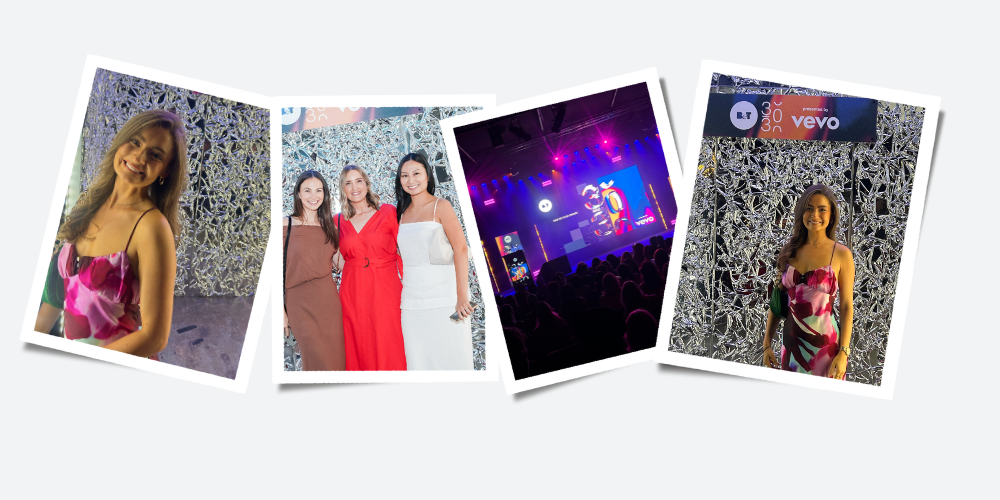From Advertising Agencies to Recruitment Agency
Almost a year has flown by since Lead Consultant Sheryn Small joined the iknowho team from a successful career in Adland. So, we thought now was a good time to sit down and take a moment to reflect on her transition over to agency recruitment.
Sheryn, can you tell us a little about your background starting out in agency land?
After gaining a Bachelor of Communications in Advertising and Marketing I worked for a couple of small agencies until my first big break with Whybin Lawrence TBWA. Here I was lucky enough to work on the Nissan Automotive account. This seemed to set the tone for the rest of my career in Adland, as I ended up working on a lot of car accounts! Following this, I went to Foster Nunn Loveder where I spent 3 years working on Volkswagen and Sony which was probably the highlight of my agency career.
I then spent 6 years in London - 3 years at an Omnicom agency called Maher Bird & Associates, and then 3 years with a German agency called Scholz & Friends. I worked on a variety of sectors from automotive (Mercedes-Benz), music (MVC), retail (Tchibo) and FMCG (MasterFoods). I had an amazing time over there and was actually considering leaving the industry on my return to Sydney, as to be honest, I was a little burnt out. However, the pull was too strong and I continued working in advertising at a great boutique agency, working on Fiat (Cars again!) amongst other accounts.
At what point did you transition into Talent at Havas and what was the motivation to do so?
After the birth of my first child, Toby, I went back to DDB for a year. As much as I loved that year, it was tough juggling motherhood and a GAD role. So after the birth of my second child Layla, I took a contract role at what was Euro RSCG back then. It was actually a little by chance, as the Talent Manager left the business. She asked me in the interview what I was looking to do for the next 5-10 years, and I joked about taking her role. Well, about 3 or 4 weeks later she offered it to me! A little serendipitous; a case of being in the right place at the right time.
A talent role was always in the back of my mind as I’m such a people person. I always enjoyed the process of recruitment during my time in Account Management; I enjoy the psychology of people, so talent was always on the radar as something to consider.
What were the differences between working as a senior suit VS internal talent?
To be perfectly honest, when I went into my first internal talent role I thought the grass would be greener; I thought perhaps it wouldn’t be as stressful as being a suit. In hindsight, I can see both sides come with different challenges.
When you’re a suit the challenge is around delivering great work on time and to budget. You’re dealing with multiple departments, and juggling 1000 balls in the air. In talent, you’re still juggling and problem-solving but you replace being involved with creativity with being much more involved with the people and agency brand. It’s about building up an amazing culture in the agency to attract great talent to join the team. There is stress involved, as for example, any missing resource can increase pressure on the team as a whole. If that pressure gets too great, you may end up having more roles to replace! Equally, you need to find the right people, so it can be a real balancing act.
I think what I enjoyed a lot more in my internal talent roles was the exposure to the leadership team. Particularly once I was promoted to Chief Talent Officer I enjoyed being such an instrumental part of building an agency; coming up with initiatives to make the agency better and attract better talent. I absolutely loved that, and that’s something I would not have got from being a suit.
What was the reason for wanting to move to external recruitment and why iknowho?
I think for me, I had been in agencies my entire career and I felt I wanted to step outside of an agency environment. I felt like it was time to do something different and improve my work-life balance.
The reason for choosing iknowho was an easy one - I have known and worked with the iknowho business since returning from London. I actually met Dene before she started iknowho, and we stayed in contact once she started building the business up. iknowho actually placed me at DDB, so I was originally a candidate. Once I took on internal talent role at Havas I became a client of iknowho, and then, when I heard there was an opportunity to join the team I thought I’d love to go and work for iknowho.
The brand has a very similar set of values to me; valuing honesty and transparency in dealing with people - something I find really important. They were also one of my favourite recruiters I worked within internal talent, so it just made sense!
How have you found the transition from internal talent to agency recruitment?
I think there's a lot of similarities, but there have also been new areas to learn about and educate myself on. I’ve really enjoyed broadening my knowledge of the agency landscape in Sydney. There are a lot of niche agencies creating great work which prior to working at iknowho, I wasn’t overly familiar with. Transitioning into a role which also covers client-side marketing roles has provided me with some great learning opportunities and a fresh perspective too.
Other differences between internal and agency recruitment which I’m appreciating are being able to focus more of my attention on my candidates' needs by leaving the HR element of my last role behind, having the opportunity to work autonomously - I’ve been surprised at the real satisfaction that comes from this! Another positive adjustment has been working in a small boutique environment, building deeper relationships with my colleagues.
Importantly for me, the biggest and most positive shift has come from being able to create more time for myself and my family. I now have much greater flexibility in terms of hours and working from home, which has really helped me improve my work-life balance.
If you could give advice to people wanting to move into a talent role what would it be?
To utilise the connections you have already built during your career so far. Changing your career path is never simple, it takes a lot of dedication, will and patience. Be persistent. I’m a firm believer that if you want something badly enough you can make it happen.
If you're looking to transition into a new role, contact Sheryn, Brianna or Kahli today for a confidential chat about the opportunities available. Alternatively, you can view our live jobs here.










